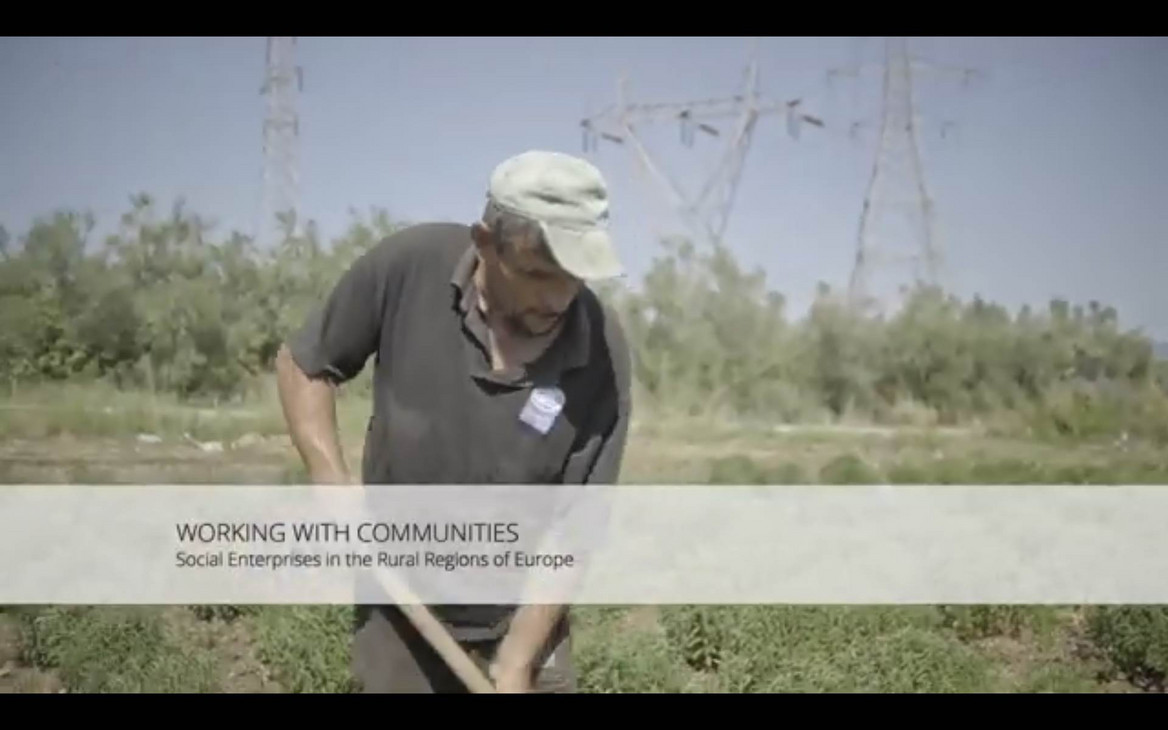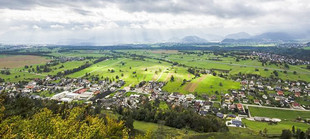Main Content
International Conference and Policy Roundtable: How European Social Enterprises Promote Rural Areas

For a long time, rural areas were considered culturally detached and economically unattractive, but this bad image is losing its force. Research in the spatial and social sciences is now increasingly interested in the innovative power of rural areas and rural entrepreneurship. The EU project RurAction looked at social enterprises in rural areas and the social innovations they generate to address typical rural problems. An international web conference and a web policy roundtable held in September of 2020 discussed new scientific findings as well as recommendations for policy makers and practitioners on the ground.
By far not all rural areas are economically structurally weak. However, those rural regions that had to struggle with emigration, a lack of opportunities, a withdrawal of state infrastructure and private services and - as a consequence - a shortage of skilled workers for the remaining businesses, suffered additionally from negative attributions in the media-led debate. There was talk of "dying" or "bleeding out" villages, "empty" areas of land and "uncoupled" inhabitants.
At the moment several things are changing simultaneously. The image of rural areas was already gradually improving before the Corona pandemic, but it received a further significant boost since the media started talking about "flight from the cities", which are now considered "narrow" and "contagious". In fact, rural areas are increasingly becoming the target of immigration from urban regions - although this applies primarily to areas that are not too far from cities and that are well served by transport. In social science research, there is also a growing interest in the innovative power of rural areas.
The EU-funded Innovative Training Network "Social Entrepreneurship in Structurally Weak Rural Regions: Analysing Innovative Troubleshooters in Action", or "RurAction" for short, which is coordinated by the Leibniz Institute for Research on Society and Space in Erkner, is dedicated to precisely this topic. The focus is on social enterprises, i.e. those companies that do not primarily strive for profit (although they can also make a profit), but rather want to promote the common good in their respective regions. They can achieve this, for example, through socially innovative approaches: new solutions to problems that exist locally and which are achieved through creative new combinations of existing concepts - cooperative marketing structures for regional agriculture in conjunction with socially and ecologically oriented projects, for example.
The special thing about RurAction is that the network is not only interested in scientific knowledge, but also in close cooperation with the practical side of the business. Young researchers who write their doctoral thesis within the framework of RurAction spend several months at social enterprises to gain practical experience. Conversely, the exchange with research helps social enterprises to reflect on their own goals and strategies.
On 21 and 22 September 2020, the results of the RurAction network were presented at the international web conference "Social Entrepreneurship and Social Innovation in Rural Regions". The conference also saw the premiere of a documentary film made within the project, which presents the work of the participating social enterprises in Portugal, Ireland and Greece. The documentary will be published, among other outlets, on the IRS's video channel. In addition, internationally leading researchers reported on the state of the art of knowledge on social innovation and social enterprises in rural areas. The contributions relate to numerous European study regions, but also, for example, to the Uckermark in Brandenburg.
On September 23, 2020, researchers and practitioners from the RurAction network presented their practical recommendations, which were compiled in a policy paper and a practitioners' handbook. Both will be published in autumn of 2020.


